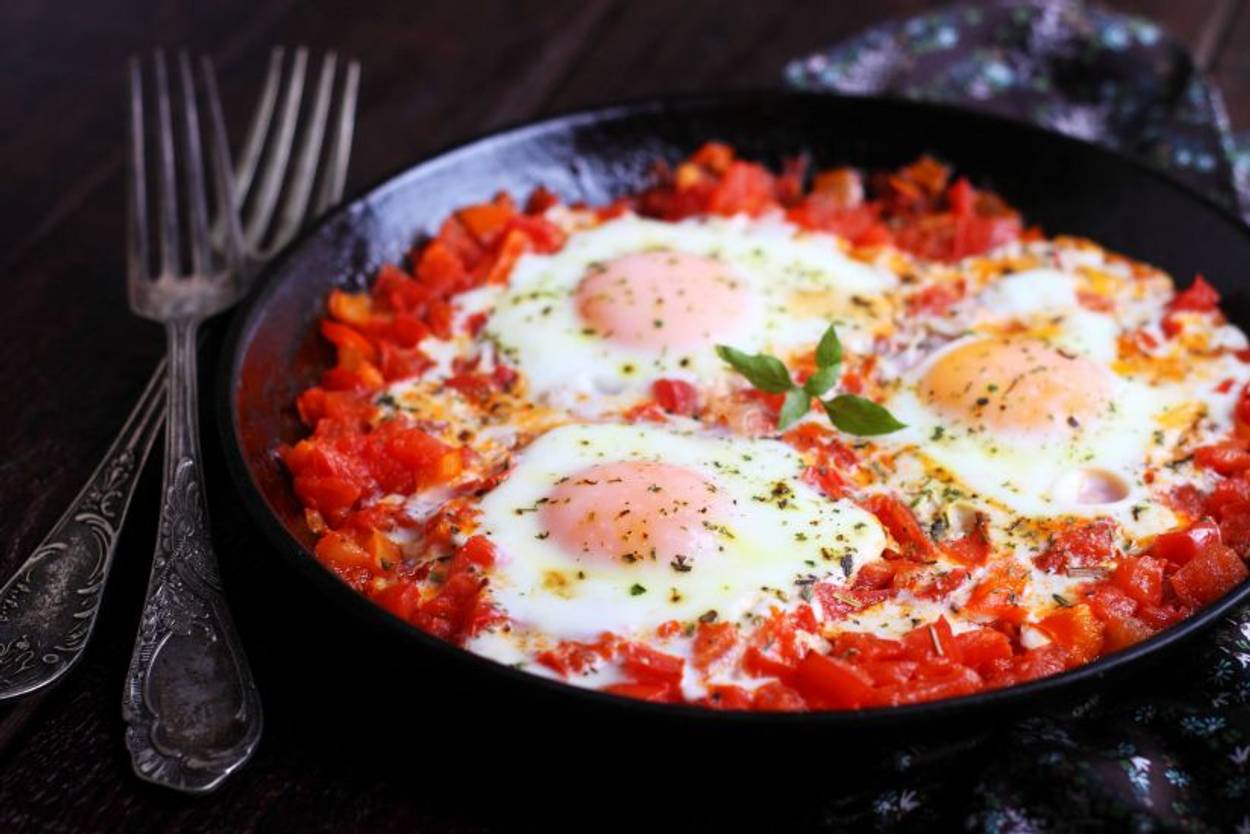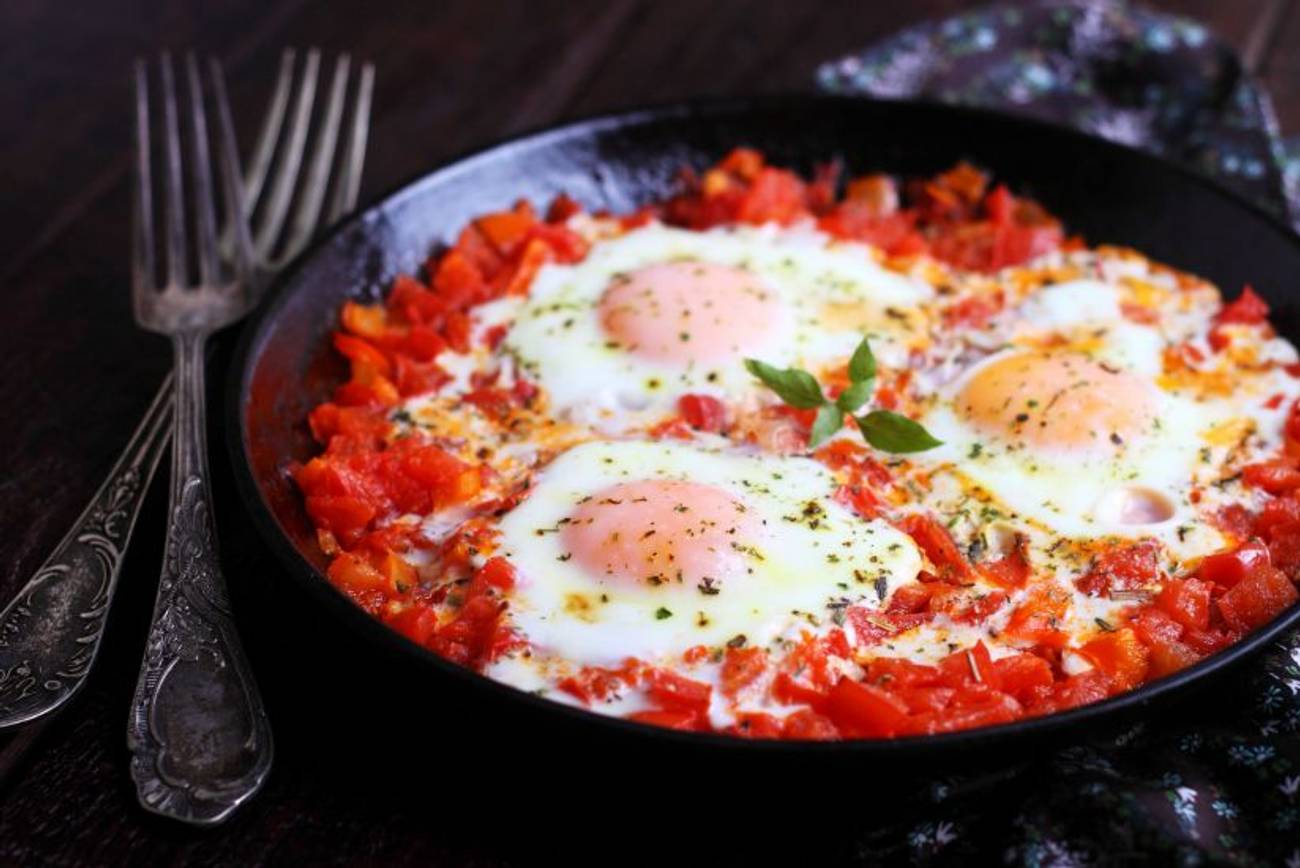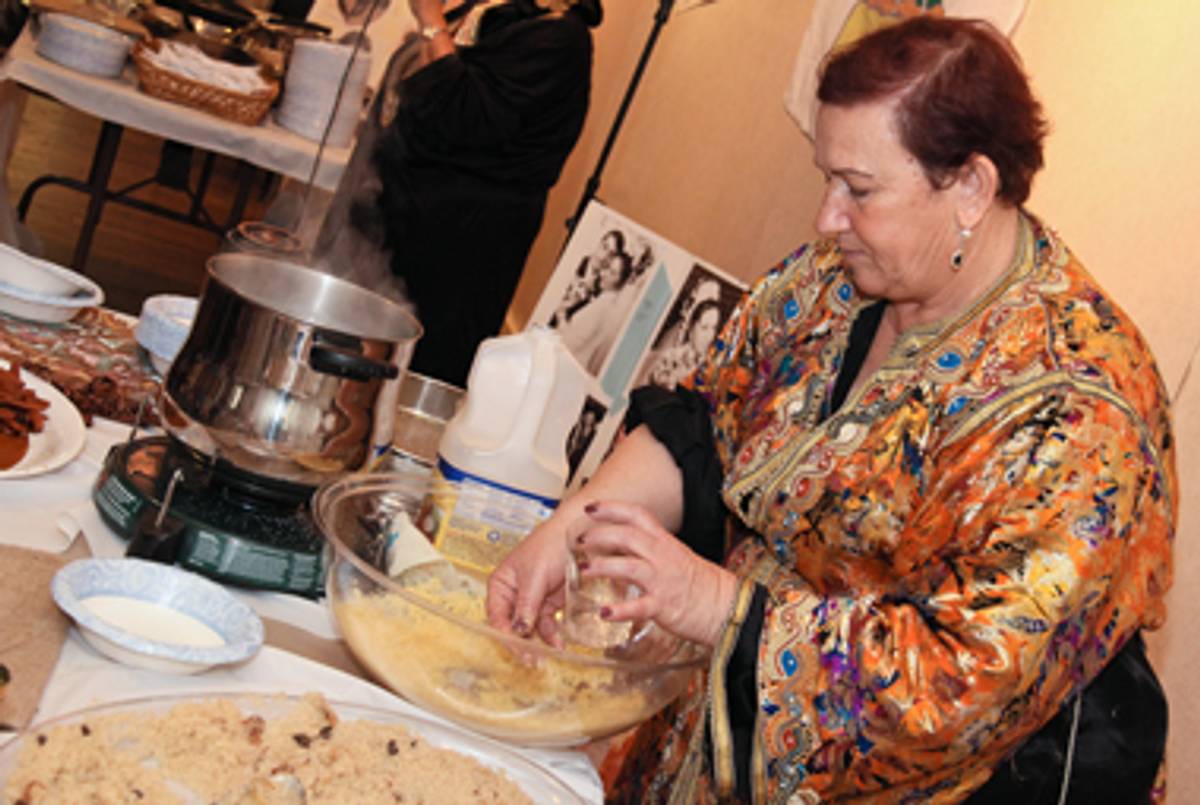Kitchen Aid
A philanthropic effort helps low-income immigrant Israeli women build small businesses by cooking the dishes they know best. It’s a good program, and it’s delicious food.




When I visited Beit Shemesh, not far from Jerusalem, earlier this spring, almonds were bursting into white bloom in the countryside. I was in search of good home cooks, and here in the biblical home of the Kohanim, the priests of the tribe of Levi, I found them.
Beit Shemesh has long been an immigrant town. After World War II, Holocaust survivors settled there, followed by North African immigrants and, most recently, Russians. In the 1980s, Mickey Blumberg, a South African immigrant living in Jerusalem, started the Women’s Empowerment Program in the Negev, and in 2004, she brought it to Beit Shemesh. With support from the South African Women’s Zionist organization, the program offers low-income women seed money to develop small businesses—sponsoring open houses that showcase cooking projects and getting micro-dairies and olive-oil presses off the ground—and organizes overseas trips for them to introduce their food to Jewish communities around the world. “In the 1980s, the Beit Shemesh area began to suffer particularly,” Blumberg told me as we drove through the countryside where David slew Goliath. “Many of the older women cannot read; they work as maids in houses in Jerusalem, have no pensions, and have little pride in what they do. Cooking they do well.”
And their contribution goes far beyond individual meals. There was a time when hummus and falafel were considered the epitome of Israeli food, but ethnic dishes such as the ones these women cook—heavily influenced by Moroccan, Persian, Russian, Afgan, and Yemenite cultures—have changed all that.
I started my food-packed tour of Beit Shemesh with breakfast at Dina Alfasi’s home, surrounded by olive trees. Alfasi, who came to Israel at 16 years old from Tunis, Tunisia, spent many years working as a nurse. Now widowed and retired, she dreams of opening a restaurant in her home—serving Tunisian meals to visiting tourists. We ate breakfast on her kitchen table, first enjoying her home-cured olives. Margalit Ozeira from moshav Zlafon, a Yemenite friend who works as a cleaning woman in Jerusalem, came by and brought a salouf, a type of large flat Yemenite bread, which we dipped in zhug and hilba, a sauce made out of fenugreek with cilantro, tomato, and garlic. Then Alfasi brought out an avocado salad, a recipe she surely learned during her long tenure in Israel, which she served alongside her wonderful shakshuka.
Shakshuka is a cooked tomato dish from North Africa that usually features garlic (but no onions) and is often served with eggs or poached salmon. I particularly liked Alfasi’s version with fresh tomatoes, peppers, and cauliflower (she uses whatever vegetables are in season). It can also be made as a pasta sauce or even as a cooked salad. We finished off this wonderful meal with tea steeped with lemon verbena from her garden.
We moved on to moshav Gefen, an agricultural settlement, where we stopped in to visit Tsiona Levi, a hairdresser. Her husband, a retired postal worker, now spends his days working on his art and has turned their house into a veritable Kurdish museum of daily life, with his paintings on the walls and sculptures made from found material outside. We had cherry jam and chocolate that Levi’s daughter helps to make in Tel Aviv.
We ate lunch underneath a beautiful fig tree at Lea Avraham’s home in the moshav. She served us a delicious Kurdish chicken and cabbage soup with kubbeh, dumplings made out of semolina and bulgur and filled with meat, and stuffed grape leaves with meat, rice, onion, and parsley. Avraham’s Moroccan neighbor, Batsheva Gabai, brought over fig jams served with fresh tea infused with mint leaves grown in her garden.

Just last week, I had the opportunity to see some of these women again—and taste their wonderful cooking—when a group from Partnership 2000 came to my synagogue, Adas Israel, in Washington, D.C. Smadar Kaplinsky, who develops small businesses for women in Israel, helped organize the trip to the United States, and last Friday night the women showcased their food. They served Iranian chicken soup with gondi—plump dumplings made from chickpea flour—Moroccan stuffed onions, peppers, and tomatoes with meat and rice, Russian blinchiki stuffed with beef. Speaking in Russian, Farsi, Arabic, and Hebrew, the women stood behind their buffet stations, serving up their delicious food with pride.
To better understand these women’s lives, Kaplinsky, Mickey Blumberg, and Mickey Feinberg, from the Jewish Federation of Greater Washington, assembled a booklet of their stories and their recipes—along with some dishes from Israeli chefs who have helped them. (They are currently looking for a publisher.) The booklet happens to contain one of my favorite recipes, made by Amos Sion, a chef who helped organize a similar group of women from Beit Shemesh to visit South Africa. The dish is malabi, also known as Mouhalabiye, a pudding or custard drizzled with pomegranate syrup and pistachios. It’s the perfect recipe for Shavuot, coming up in early June, or any time you’re looking for a sweet taste of spring. (For information on obtaining the booklet, contact Smadar Kaplinsky at [email protected].)
Correction, May 31: This article originally stated that Mickey Blumberg started the organization Partnership 2000. She did not. She established the Women’s Empowerment Program, within the framework of Partnership 2000. It has been corrected.
Joan Nathan is Tablet Magazine’s food columnist and the author of 10 cookbooks including King Solomon’s Table: a Culinary Exploration of Jewish Cooking from Around the World.